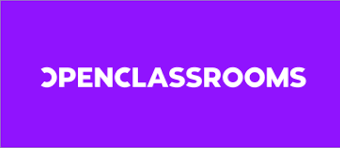
Concept
OpenClassrooms is a mission-driven online learning platform that aims to make education accessible to all. It empowers people—whether in career transition or entering the job market—to train for in-demand professions through certified programs, supported by dedicated weekly mentorship from seasoned industry professionals.
Mission
1. Improve the day-to-day experience and effectiveness of mentors, ensuring consistent, high-quality support for students—while also reducing dissatisfaction and churn, especially among students funded by France Travail. Their graduation was essential not only for student success, but also for OpenClassrooms to receive public funding and maintain its certification credentials.
2. Streamline the application process by automating candidate orientation and enhancing guidance—improving satisfaction, clarity on eligibility, and overall conversion to programs.
This work was conducted over three years, structured in two distinct but complementary phases: the first focused on the mentorship experience, the second on the candidate journey.
Want to learn more?
- To learn more about the approach adopted at OpenClassrooms, I invite you to read a series of articles written by our Head of Design, who led the design productivity strategy. The articles on building a UX Research Repository and conducting user research in 5 structured steps reflect two initiatives I actively contributed to and leveraged in order to accomplish my mission.
- For a deeper dive into the full process and to explore the detailed work I carried out, you can click on this link to access a step-by-step breakdown (in French). Please note that access may require prior authorization depending on your profile, as the content contains highly detailed information.
Challenges
By adhering to this methodology, we ensure that our design process is research-driven, iterative, and focused on delivering an exceptional user experience. Through a combination of research, ideation, and visual design, we create intuitive and visually appealing interfaces that meet the needs and expectations of our users.
Mentorship experience
- Mentors with more than 15 students had created their own tools to manage sessions efficiently, while others (with under 5 students) struggled with limited structure.
- There was no prior segmentation or understanding of mentor profiles or daily habits, which made it hard to support them meaningfully.
- This created inconsistencies in how students were supported, impacting both project quality and graduation rates.
- The invoicing process was time-consuming, confusing, and generated a high volume of support requests.
-
Key improvements (Mentors)
-
Conducted deep user research to define personas, identify pain points, and prioritize mentor needs.
-
Improved scheduling, session tracking, and feedback traceability—enabling mentors to deliver clear, written guidance that students could revisit between sessions.
-
Facilitated stronger mentor-student relationships by improving the onboarding process and profile sharing.
-
Clarified and simplified the invoicing experience, reducing support requests and internal workload.
-
Provided better time tracking and data visibility to monitor mentorship quality and costs—critical given mentorship was the company’s largest expense.
Candidate experience
- The application process was long, repetitive, and discouraging—especially for France Travail candidates who had already provided similar documents elsewhere (30% of our candidates).
- Manual candidate evaluation by agents led to errors, delays, and inconsistencies—especially regarding prerequisites required by the State.
- Many candidates didn’t understand why they were rejected, which impacted satisfaction and OpenClassrooms’ brand perception.
- Failure to verify those prerequisites could result in serious legal risks, including loss of diploma validity and state-issued certification for OpenClassrooms.
Key improvements (Candidates)
-
Implemented France Travail and LinkedIn login to pre-fill key fields and reduce friction.
-
Shifted from an “admission” model to an “automated orientation” logic, based on a structured data architecture across the platform.
-
Improved the data collection system to avoid redundancies, enable audit compliance, and match candidates to the right program and funding options.
-
Freed up agents’ time for higher-value tasks—such as guiding candidates, answering questions, and reassuring them about their learning journey.
Design methodology
By adhering to this methodology, we ensure that our design process is research-driven, iterative, and focused on delivering an exceptional user experience. Through a combination of research, ideation, and visual design, we create intuitive and visually appealing interfaces that meet the needs and expectations of our users.
Research and Discoveries
-
Conducted user interviews, quantitative surveys, and hotjar analysis.
-
Mapped user journeys and created personas for both mentors and candidates.
-
Launched monthly tracking surveys to observe behavioral trends and flag new issues over time.
-
Ran a full audit of the application journey to inform long-term decision.
Ideation and strategy
-
Collaborated with PMs, developers, and operational stakeholders.
-
Defined a long-term vision and roadmap for the application journey, phased over 18 months.
-
Ensured each feature addressed both user needs and business KPIs (e.g. graduation rate, funding success, churn).
-
Promoted collaboration across squads to create aligned, scalable, and regulation-compliant solutions.
Conception and visual design and impact
-
Leveraged the existing design system to build consistent and accessible UI.
-
Delivered interactive prototypes for usability testing and validation.
-
Created a post-launch feedback loop to assess user satisfaction and measure business impact.
-
Structured iterative MVP delivery cycles based on key success metrics.
